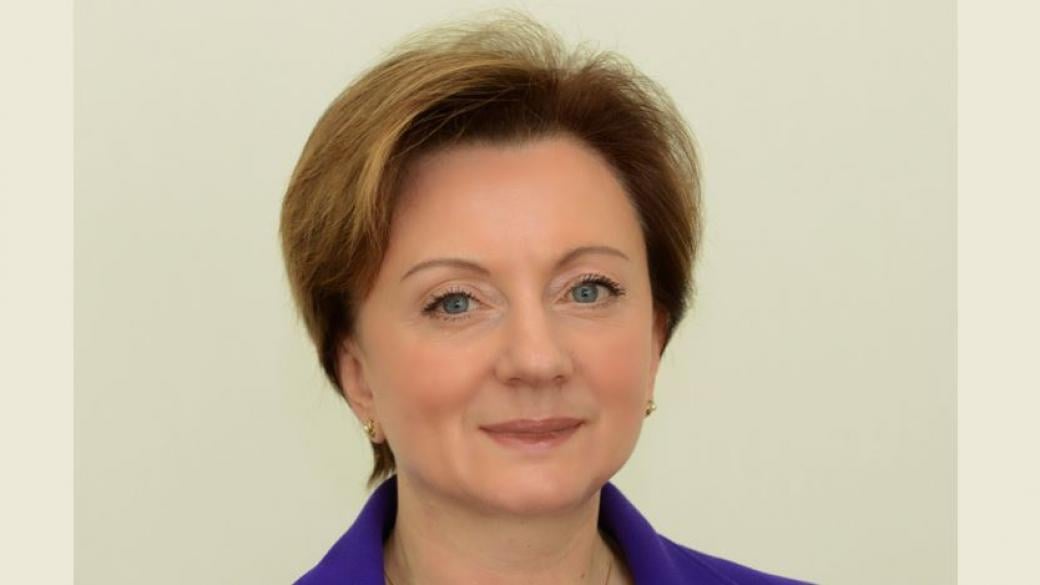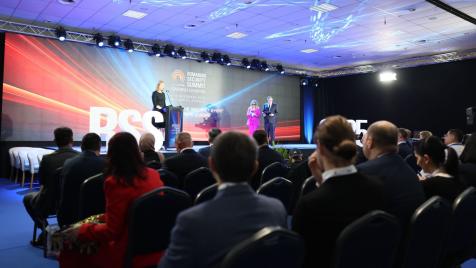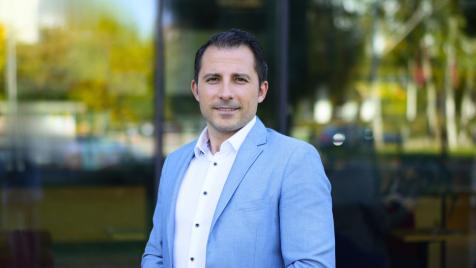We must always be ready for a change
Companies are successful when they find entirely new markets that meet the unsatisfied needs of clients
Rumyana Kyuchukova:

Rumyana Kyuchukova has been the Deputy Chairperson of the International Investment Bank (IIB) since February 2016. In the period 2012-2015, she was a consultant in the field of finance and investment. She has been a member of the Board of Directors of the World Bank and the International Finance Corporation for seven years. Between 1997 and 2000, she was the economic advisor of the CEO and Internal Audit Director at Mobiltel AD (Bulgaria), then, for about two years, she was leading the mobile operator.
Mrs Kyuchukova, you are the first Mrs. Economy. What are your memories with regard to this award in 2001?
Above all, I remember the people I have worked with – wonderful professionals who give every bit of themselves for the company. I still keep in touch with many of them. This award is not only mine; it is to the whole team that worked at that time. It was recognition of their daily work and efforts, and it motivated them to continue to work even harder. It is a proof that their efforts did not remain unnoticed.
Economy Magazine was born in the year in which Bulgaria took the course towards democracy and market economy. What do you think are some of the strengths, but also the weaknesses of this tough path of change?
If we only look in the field of economy – the key change was to make it a market-based one. Bulgarian business has become an integral part of world markets, which opened up new opportunities, but also put higher demands on the quality of production and its competitiveness. The opportunities to attract foreign investments and the development of leading technologies increased sharply. At the same time, the process of privatisation, which is in fact a redistribution of huge public resources in private hands in the absence of relevant private capital accumulations, has led to serious economic and social imbalances at national level and to certain negative public attitudes. To these should be added the relatively limited interest by foreign investors (especially at the privatisation stage) – unlike the Central European countries. This was largely related to the fact that Bulgaria was on the “wrong side” of Yugoslavia. The wars have physically cut the country from Europe, and in combination with the embargo, they generated long-term problems for both the country and the region, such as organised crime and corruption that inevitably accompany every war and embargo.
As a representative of the senior management of IIB, what is the mission today of the bank, established in 1970?
IIB is one of the oldest international development banks, bringing together nine countries; it is similar in terms of status to the European Bank for Reconstruction and Development, the European Investment Bank, the Council of Europe Development Bank, the International Financial Corporation (IFC), etc. These banks differ from commercial banks and their main mission is not to derive commercial profits, but to support the sustainable economic development of member states and to deepen trade and economic cooperation between them, which is reflected both in the financial products we offer to our clients and in their conditions. The massive reform in the IIB after 2012 led to a change, an update of its mission, which is mentioned in the new Five-Year Development Strategy – 2018-2022, namely, to support connectivity and integration between the economies of the member states in order to ensure sustainable and inclusive growth and competitiveness of national economies.
Bulgaria is one of the key members of the IIB. How does this affect Bulgaria and the business in our country?
Bulgaria is the second largest shareholder in the institution and its share in the share capital amounts to 12.95%. At present, the bank has financed the local business with over EUR 220 million and the active portfolio at the end of January 2019 is EUR 140 million. In addition to providing loans, including to small and medium-sized enterprises, the bank is also a buyer of Bulgarian government securities from the local market. We also have syndicated loans together with the Bulgarian Development Bank (BDB). It has the status of an observer at the IIB and we have excellent cooperation, which we hope to develop to the benefit of Bulgarian business in the future, as well. In 2013, the BDB received a credit line of EUR 20 million to finance small and medium-sized enterprises in Bulgaria. The funds were provided for a period of 7 years and were used both for direct lending to companies and for financing programs for support of Bulgarian business, implemented by commercial banks. We have also signed Memoranda of Cooperation with the Bulgarian Export Insurance Agency and the Bulgarian Chamber of Commerce and Industry.
The reason to reach out to you was retrospective. What do you think provides a long life to a company or a business venture?
It’s very difficult to get to the top, and even harder, to stay there. In the conditions of a global economy, where change is constant, and competition – ruthlessly harsh, the situation can change every moment and you have to be ready for changes, and even in a very abrupt way. Some companies are always better than others, which are superior to them, not because they have more resources, or because the smartest, most skilled and capable people work there, but because they are constantly looking for innovation, and what I mean is something more than creating new products. These are also new skills that managers and employees can develop and master. It is about the perfection of business processes and the discovery, the creation of completely new markets, which have not existed until now, which are to meet the insufficiently satisfied needs of the clients. I would like to quote Amazon.com’s Chief Executive Officer Jeff Bezos: “In Amazon we have three big ideas that we have been following for 18 years and which are the reason for us to be successful: 1. Put the client first; 2. Invent something new; 3. Be patient.” I think this answers the question; we have to learn from the big in business.
Your wish to Economy Magazine?
To remain as young in spirit and as professional as possible!

 Tatyana Yavasheva
Tatyana Yavasheva 


